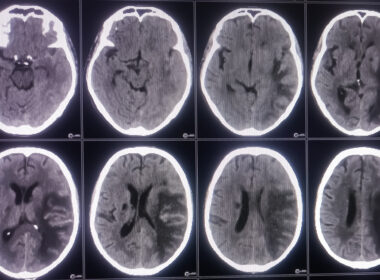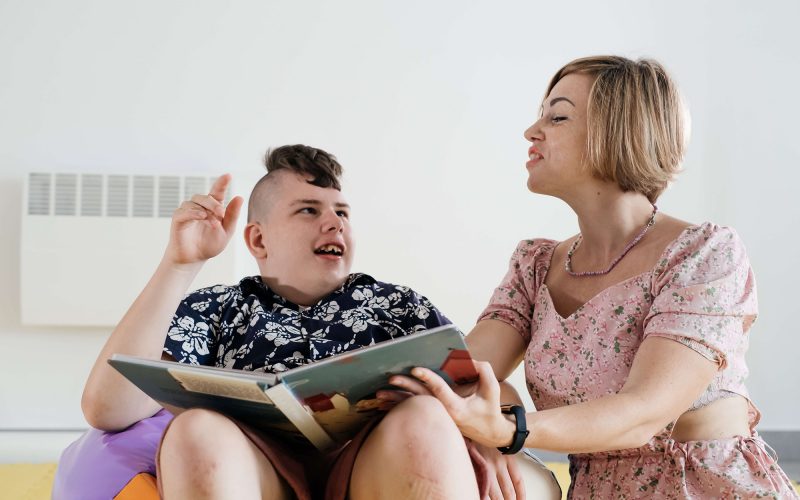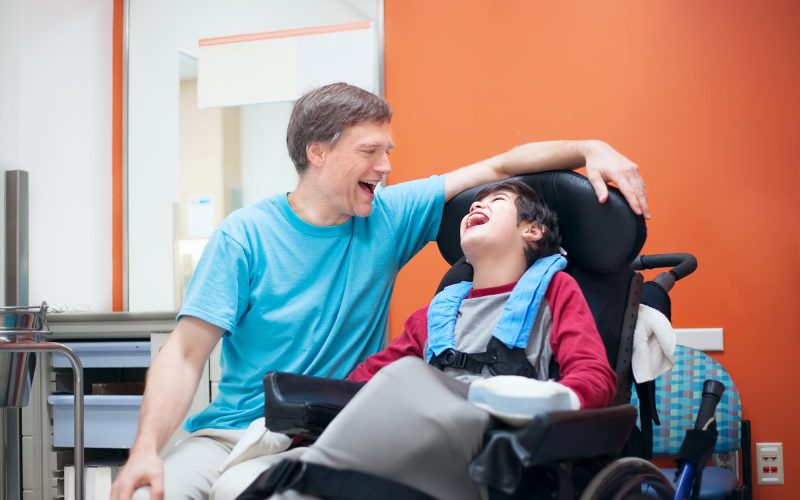The U.S. Centers for Disease Control and Prevention determined that one in 345 children is diagnosed with cerebral palsy, making it the most common motor disability in adolescents. While there is no cure for cerebral palsy, treatment and therapy may help alleviate and reduce symptoms. It is imperative to diagnose cerebral palsy as quickly as possible in order to begin therapy to improve the child’s quality of life.
By prescribing occupational, physical, or speech cerebral palsy therapy at the earliest stages of development, a child is offered a greater opportunity to live comfortably and independently and reach their full potential.
Cerebral Palsy Therapy Begins with Diagnosis
Misdiagnosis of cerebral palsy can delay cerebral palsy therapy. Therefore, diagnosis timing is essential, according to the American Academy of Pediatrics, which suggests that standardized developmental screenings should be conducted at nine, 18, and 30 months during well-child visits. If a delay in diagnosis is suspected, a physician should examine all the possible risk factors, including low birth weight, premature birth, multiple births, and infection during pregnancy.
Several types of health professionals are trained to identify signs of cerebral palsy in a child’s early development. A neurologist can usually spot a possible cerebral palsy diagnosis during an appointment without having to run any diagnostics. An orthopedist trained in bone and muscle growth can identify early signs of the condition, including abnormal tissue tone, stiffened legs, and delays in a child’s ability to sit and crawl. At the same time, a psychologist can detect early signs of depression, anxiety, and conduct disorder, which are all conditions that someone with cerebral palsy may have a greater risk of developing. In addition, a speech therapist or pathologist can detect problems with swallowing and word pronunciation, both of which may be affected by cerebral palsy.
Types of Cerebral Palsy Therapy
Cerebral palsy therapy professionals play an essential role in treatment progress. Physical, occupational, and speech therapists work individually and in tandem to help a patient develop the skills necessary to lead a more independent life.
Occupational Therapy
Occupational therapy centers around a child’s daily activities, such as playing and learning. In order to learn, develop, and remain as independent as possible, cerebral palsy therapy should include opportunities for play and developing self-care skills.
Occupational therapists may work with a child to improve their fine motor skills and bilateral coordination. Specifically, occupational therapy may help people with cerebral palsy develop the following skills:
- Dressing
- Eating and feeding
- Brushing teeth
- Bathing
- Writing
- Throwing a ball
The type of cerebral palsy someone has may affect the skills they need to develop in occupational therapy. For example, someone with spastic cerebral palsy, which is known for muscle stiffness and jerky movements, might need to work on tasks associated with daily self-care, while someone with athetoid cerebral palsy might need to develop fine motor skills such as writing, as that form of cerebral palsy typically causes muscle tremors.
These skills can not only help a child feel more independent but can also go a long way in improving their self-confidence.
Physical Therapy
Physical therapy is a very individualized type of treatment that depends on the severity of a patient’s condition. For instance, some children may be able to walk independently, while others may require the use of a wheelchair, forearm crutches, or other mobility aids. Some people with cerebral palsy may also have related conditions, such as scoliosis, which should be reflected in their individualized treatment plan. A physical therapist should work toward helping your child be as independent and comfortable as possible.
Physical therapy can help with the following:
- Coordination
- Balance
- Gait
- Posture
- Muscle stiffness
- Pain management
- Proper use of adaptive equipment, such as walkers, braces, wheelchairs, and more
Speech Therapy
Speech therapy is often vital in treating cerebral palsy. Talking, eating, swallowing, and even breathing can be significantly affected when someone lacks proper face, neck, and throat control and coordination. Cerebral palsy speech therapy may target:
- Learning sound and word formation
- Speech volume
- Articulation
- Fluency
- Chewing
- Swallowing
- Breath control
A speech therapist will help a child understand how their tongue, lips, and mouth work together to produce certain sounds as well as to eat and drink. Some tools used in effective speech therapy are lip, jaw, tongue, and swallowing exercises that can be performed with the assistance of oral sensory chews, tongue depressors, mirrors, flashcards, and more. Speech therapy can play an important role in helping someone with cerebral palsy communicate more effectively which can help improve their self-confidence and overall quality of life.
Cerebral Palsy Therapy Resources
Advancements are being made every day in cerebral palsy therapy and treatment. To better understand the options available for you or your child, we encourage you to consult the following organizations and forums:
Contact Justpoint for Cerebral Palsy Guidance
The costs associated with cerebral palsy therapy can be high, but in some cases, families may qualify for compensation to help them cover their child’s medical care.
Cerebral palsy is a condition that is often developed shortly before, during, or soon after birth. During these critical stages of a child’s development, any negligence on the part of a doctor or other medical professional can have life-altering consequences, including a cerebral palsy diagnosis.
If you suspect your child’s cerebral palsy may have been caused by medical negligence or malpractice, or if you are unsure and would like to consult an expert, contact Justpoint today. Our team can connect you with a qualified attorney who can review your medical records to identify possible signs of medical malpractice and help determine whether compensation may be available in your situation.
Our database will match you with the attorney best suited to your case. From there, one of the trusted lawyers in our network can assist in investigating the cause of your child’s condition and help obtain all relevant medical records and evidence required to file a strong cerebral palsy medical malpractice lawsuit.
These cases are time sensitive, so parents are advised to act quickly to protect their rights to possible birth injury malpractice compensation. Waste no time in contacting Justpoint to determine whether your child may qualify for compensation. Let us get you connected with the right attorney for your circumstances.












